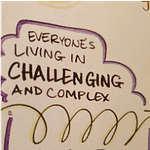The following is a summary from the event that took place on 30th April.
Transform your business through the power of trust
Capital One and Barclays
30th April 2014
Trust, or integrity, is a key driver of engagement which is also a key driver of business performance. Capital One and Barclays, two major players in financial services – a sector not currently blessed with a high reputation for trust – talked about how they use this critical organisational value to drive their businesses forward. Their practical experiences were supported by insight and data from the Great Place to Work® database.
Speakers for the event were the following:
Charles Fair, Head of Consultancy, Great Place to Work®
Karen Bowes, VP, International HR & Sustainability, Capital One
Lee Hewett, VP, Corporate Affairs, Barclays
Key points
Trust in business leaders is at an all-time low, ranking only 10 out of 15 professions considered trustworthy by the general public in a recent survey
Trust is a key business value that drives engagement which also drives business performance
Organisational values are shown to be one of the top key drivers in turning an organisation with average levels of trust and engagement into one with high levels.
97% of Best Workplaces (organisations officially audited and recognised as having high levels of trust and engagement) say they have formal values statements. They put their values at the heart of everything they do and they attribute their business success to them.
3% of those responding to the survey say they have no formal values statement but are still driven by a guiding set of principles or ways of behaving and doing business.
You don’t need a formal values statement as such, but most organisations are implicityly guided by a set of behaviours and expectations. It is these ‘principles’ that create the organisation’s culture. Strong, positive workplace cultures are likely to have high levels of trust and engagement.
Having a set of values (either implicit or explicit) is one thing, but what’s most important is integrating them into the business.
Successful integration of values requires Leadership, communication and empowerment.
People shouldn’t have to ‘earn’ your trust – give it freely from the beginning.
Interview process should be more values-driven – focus should be on selling the organisation’s values and assessing fit, rather than the candidate trying to sell themselves.
Don’t be afraid to let people go, quickly, if it’s not working out. How you manage this is also part of an organisation’s employee value proposition – it can be done with care and compassion.
Mistakes are healthy. There is still a fear of failure as this will be come up at performance management time so it can stifle creativity and innovation.
Trust bring clear business advantages and competitive differentiation – organisations can’t afford not to.
Summary – Karen Bowes, Capital One
A necessary but painful process of downsizing in 2009 had left a demotivated and demoralised workforce which didn’t trust the company. Senior management embarked on a change programme which started with the premise ‘ what business are we in, do we want to be in?’ The answer was not ‘credit cards’ or ‘financial services’ but ‘to make customers’ lives better’. This simple objective challenged their old ways of thinking and doing business and has, over the years, raised trust, engagement and profit levels.
There are various outputs that were handed out after the event and these can be found here.




